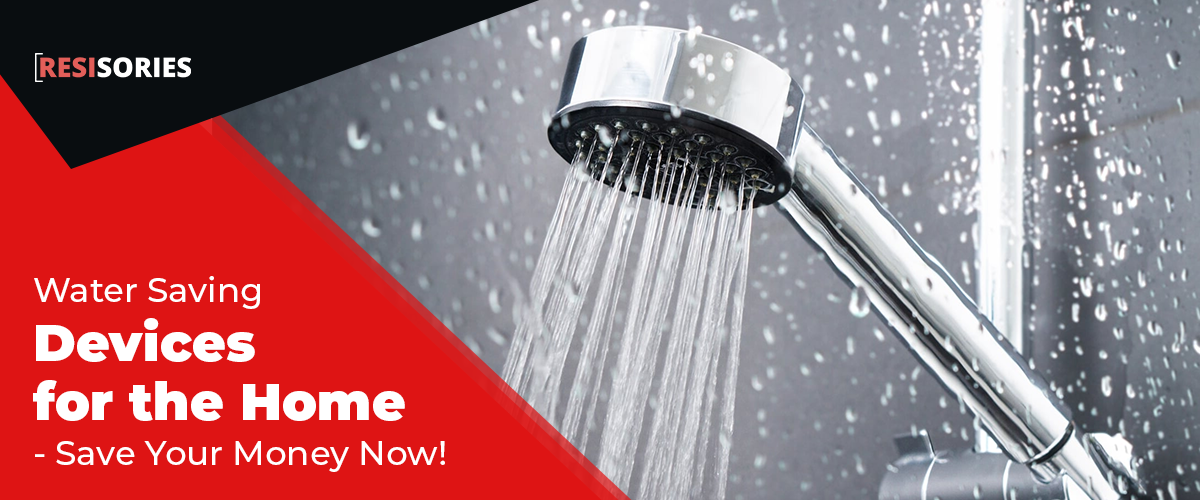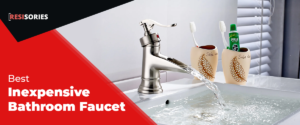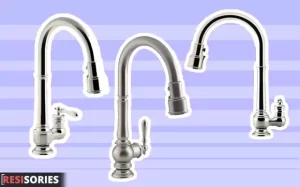Revamp your home with water-saving advancements that change the way you conserve and utilize water. By integrating low-flow appliances, eco-conscious fixtures, and smart water management systems, you can markedly decrease water consumption and decrease energy bills. Pioneering solutions like rainwater harvesting, greywater reuse, and conservation analytics enable homeowners to make informed choices about water usage. Additionally, embracing eco-friendly practices such as sustainable landscaping and efficient irrigation systems can reduce water waste and foster a favorable environmental impact. By exploring these state-of-the-art advancements, you can access a more sustainable and water-efficient future for your home.
Key Takeaways
Water-Saving Essentials for Your Home
As you begin a journey to transform your home into a water-efficient oasis, incorporating innovative solutions is vital to not only decrease your environmental impact but also save you money in the long term.
Implementing water-efficient appliances, such as low-flow showerheads and toilets, can greatly reduce water consumption. Additionally, adding water-saving devices like faucet aerators and check valves can further enhance your water efficiency.
Furthermore, sustainable landscaping practices, like rainwater harvesting and greywater reuse, can help minimize water waste. By incorporating these solutions, you can create a more eco-friendly living space.
Furthermore, opting for water-efficient appliances can help reduce your energy bills. By adopting these measures, you can make a notable impact on the environment while also enjoying long-term financial benefits.
Innovative Fixtures for Efficiency
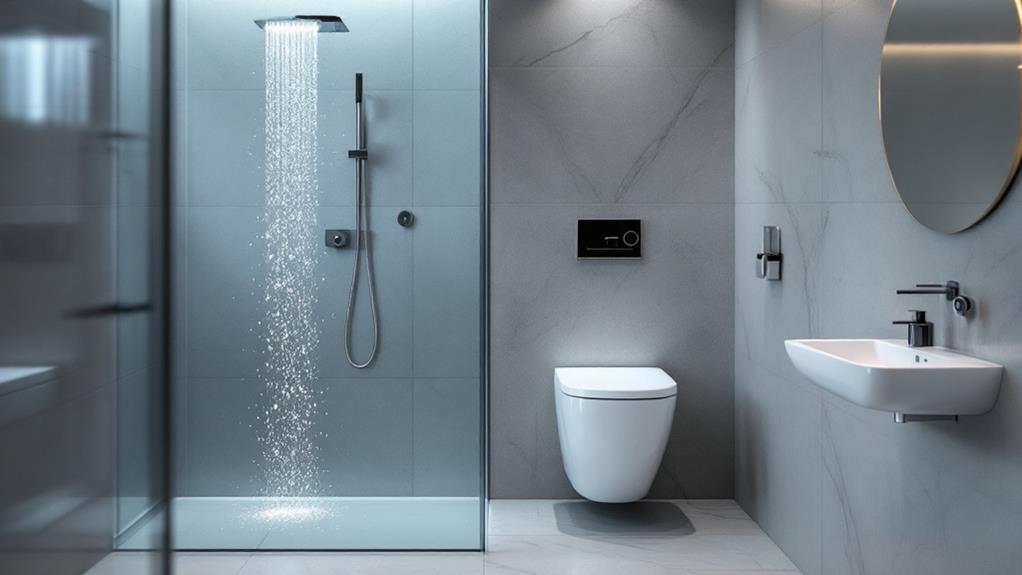
Several innovative fixtures can greatly enhance water efficiency in your home, from low-flow devices to grey water diverters. These fixtures not only conserve water but also reduce energy consumption and lower your water bills. For instance, using shower heads specifically designed to combat hard water issues can improve your shower experience while saving water.
The 7 best shower heads for hard water offer options that guarantee high pressure and self-cleaning mechanisms.
- Eco-friendly faucets with built-in aerators reduce water flow by up to 50% while maintaining water pressure.
- Sustainable showers with low-flow showerheads provide a satisfying shower experience while saving water.
- Innovative toilet designs with dual-flush capabilities decrease water usage per flush.
- Efficient sprinklers with built-in sensors detect moisture levels and adjust water distribution accordingly.
- Rainwater harvesting systems collect and store rainwater for non-potable uses, reducing the demand on municipal water supplies.
Smart Water Management Systems
Smart Water Management Systems take water conservation to the next level by incorporating advanced technologies that monitor and control water usage in real-time. These systems utilize smart metering technology to track water consumption, providing homeowners with valuable insights into their water usage patterns, much like how shower head GPM ratings can influence water efficiency. Efficient monitoring enables the early detection of leaks and anomalies, minimizing waste and reducing bills.
Automated irrigation systems can be integrated to optimize water distribution, ensuring that plants receive the right amount of water at the right time. Conservation analytics help homeowners identify areas for improvement, empowering them to make informed decisions about their water usage. By adopting Smart Water Management Systems, homeowners can take a proactive approach to water conservation, saving resources and reducing their environmental footprint.
Conservation Solutions for Daily Life
In the domain of daily life, water conservation is not just a noble goal, but a necessary practice. By incorporating simple yet effective solutions, individuals can notably reduce their water footprint.
- Implementing indoor recycling systems for grey water reuse, and adopting sustainable gardening practices can conserve water while maintaining a lush green space.
- Installing eco-friendly appliances and smart irrigation systems can optimize water usage and reduce waste.
- Upgrading to low-flow devices, such as faucet aerators and showerheads, can save money in the long run.
- Utilizing rain barrels or tanks for outdoor watering and cleaning chores can decrease water consumption.
- Implementing check valves and grey water diverters can control water flow and reduce waste, creating a more water-efficient home.
Outdoor Water Conservation Methods
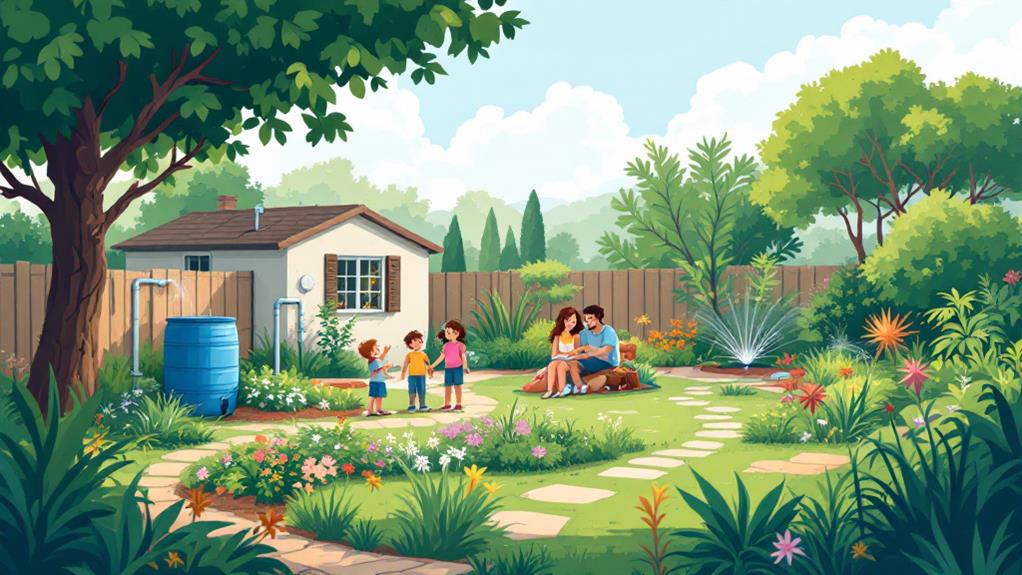
Frequently, outdoor water usage exceeds indoor consumption, making it an important aspect of water conservation. Implementing outdoor water conservation methods can notably reduce overall water consumption.
Rainwater harvesting, for instance, offers landscaping benefits while reducing potable water usage. Installing rain barrels or tanks allows homeowners to collect and store rainwater for non-potable purposes, such as garden irrigation and outdoor cleaning.
Additionally, grey water recycling promotes sustainable practices by reusing water from kitchens and bathrooms for watering plants and other outdoor applications. By adopting these methods, homeowners can make a substantial impact on water conservation, reducing their environmental footprint and saving on their water bills.
Frequently Asked Questions
When considering low-flow devices, compatibility concerns arise regarding older plumbing systems. However, retrofitting options are available, allowing homeowners to adapt new technology to existing infrastructure, ensuring a seamless and efficient water-saving solution.
Conclusion
To sum up, integrating water-saving innovations into daily life is a vital step towards mitigating the environmental impact of excess water usage. By adopting efficient fixtures, smart management systems, and conservation solutions, households can greatly decrease water consumption, leading to cost savings and a reduced carbon footprint. Embracing these eco-friendly solutions is crucial for creating a sustainable future, and with ongoing advancements in technology, the opportunities for water conservation are extensive and encouraging.
